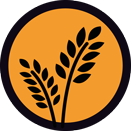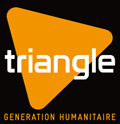AREA OF EXPERTISE

Food security and livelihood

AREA OF EXPERTISE

Food security and livelihood
FUNDING
Regarding the humanitarian situation in the field, conflicts between Misseriya and Salamat resumed in Um Dukhun locality in 2014, resulting in the displacement of more than 30,000 people (Salamat) between January and April 2014. Salamat IDPs settled in Kabar (Um Dukhun Locality), Morlanga and Amar Jadeed (Mukjar locality). Thereafter, the humanitarian response to these new IDPs has been hindered and delayed by several factors. For instance, on June 19th, 2014, fighting between the two tribes erupted again. Since then, TGH has been presented as the main and only partner in the WASH sector with the Water, Environment and Sanitation (WES, UNICEF fund) in these new IDP areas. Even though the situation has improved with the intervention of TGH and WES in September 2014 in Kabar, the water situation remains far below the standards (7 l/p/d). Likewise, the situation is alarming (0 l/p/d of safe water) in Morlanga and Amar Jadeed. The arrival of IPDs in February and April 2014 multiplied the initial population by 10. Therefore, WASH infrastructures have truly become insufficient for the overall population, and the access to WASH services for pre-existing IDPs has been restrained.
Thus, the project will complement the first response carried out by WES and TGH and cover the WASH gaps caused by these emergencies. TGH knows Central Darfur well, and has previous experiences there, operating WASH programs since 2005 in the Bindizi, Um Dukhun and, more recently, Mukjar localities.
The action is carried out in order to support in total 36,104 IDPs, host people and returnees. Among them, 31,880 vulnerable IDPs present in the targeted locations of Central Darfur (Kabar, Amar Jadeed and Morlanga), that were displaced in April 2014 due to the armed conflict between the Misseriya and Salamat tribes. In addition, the 4,224 host people and returnees will also been taken into consideration.
The action just started on February 1st, 2015, and will last over 3 months.
Actions carried out will focus on the three following areas :
Water supply will be improved through rehabilitation (2 hand pumps; 5 open wells equipped with hand pumps), and construction activities (3 new wells), owing to the installation and operation of 5 new emergency water supply facilities, and finally through water quality testing and monitoring.
60% of the sanitation gap will be filled through 2 activities: on the one hand, the construction of emergency multi-family latrines. More specifically, TGH will build 1,157 emergency latrines in areas where the sanitary risks are the highest. On the second hand, 60 communal hand washing facilities will be installed in public places such as market places, mosques, schools and community centers. Then, TGH will organize garbage cleaning campaigns at each location, managed by community members.
The entire targeted population will be reached through the distribution of soaps and hygiene promotion activities. These will consist of focus group discussions on key hygiene practices and the training of 5 female hygiene promoters in each locality, who will organize 1 mass event per month in all the localities. Finally, TGH will organize the distribution of WASH items: each household will receive 5 pieces of soap per month during the three months of the project while vulnerable women identified by the IOM (International Organization for Migration) registration will receive hygiene kits and some NFIs kits.